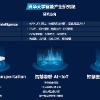Split-learning (SL) has recently gained popularity due to its inherent privacy-preserving capabilities and ability to enable collaborative inference for devices with limited computational power. Standard SL algorithms assume an ideal underlying digital communication system and ignore the problem of scarce communication bandwidth. However, for a large number of agents, limited bandwidth resources, and time-varying communication channels, the communication bandwidth can become the bottleneck. To address this challenge, in this work, we propose a novel SL framework to solve the remote inference problem that introduces an additional layer at the agent side and constrains the choices of the weights and the biases to ensure over the air aggregation. Hence, the proposed approach maintains constant communication cost with respect to the number of agents enabling remote inference under limited bandwidth. Numerical results show that our proposed algorithm significantly outperforms the digital implementation in terms of communication-efficiency, especially as the number of agents grows large.
翻译:标准 SL 算法假设了理想的数码通信基础系统,忽视了通信带宽稀缺的问题,然而,对于大量的代理商、有限的带宽资源和时间变化的通信渠道而言,通信带宽可能成为瓶颈。为了应对这一挑战,我们在这项工作中提出了一个新的 SL 框架,以解决远程推论问题,在代理商方面增加了一层层,并限制重量的选择和偏见,以确保航空总合。因此,拟议方法保持了在有限带宽下进行远程推论的代理商数量方面的持续通信成本。数字结果显示,我们提议的算法在通信效率方面大大超过数字实施,特别是随着代理商数量的增加。


